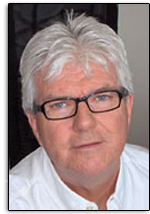On Sunday, December 14, Felipe Calderón, former president of México and Chair of the Global Commission on the Economy and Climate issued the following statement:
"This week in Lima we have made progress towards an international agreement that will send a clear signal to businesses and investors. There is still considerable work to be done. But I am encouraged that countries, all around the world are beginning to see that it is in their economic interest to take action now."1
After two weeks of arguing, debating, posturing, and wrangling and then going into overtime, the UN-sponsored Lima climate talks are officially over. Early on Sunday, December 14, a last-minute deal to save the talks from collapse was reached. It sends a signal that the have-have not divide that held up serious progress looks to be somewhat solvable. This is especially important before the landmark pact is supposed to be adopted in Paris in December of next year.
It still remains to be seen, however, whether governments can reach a new formula for how countries in different stages of development should contribute in a way that keeps global warming from reaching more dangerous levels.
The talks were still far from acceptable in reaching any agreement on reducing emissions of carbon dioxide and other greenhouse gases (GHGs) to a level that scientists say would keep global warming in hand. The Paris agreement will be the first to call on all countries to control their GHGs. So far the U.S. and other developed countries say that to do so would tear down the firewall in negotiations that compels only rich nations to rein in emissions.
Although it was agreed that goals set in Paris would apply to everyone, many developing countries worry they will be required to take on controls that stunt their economic growth. In Lima, such players angrily rejected a draught text that made no mention of different responsibilities and capabilities to fight global warming. "We are in a differentiated world. That is the reality," claimed the Malaysian negotiator Gurdial Singh Nijar. "Many of you colonized us, so we started from a completely different point."
Despite the to and fro atmosphere and often tough talk, the conference ended with a compromise based on the ground breaking U.S.-China deal on emissions targets. The Lima decision noted the principle in the 1992 UN climate change convention that countries have common but differentiated responsibilities' to tackle the problem. Like the U.S.-China deal, it added that this should be seen in light of different national circumstances,' suggesting countries' responsibilities change over time as they grow and develop.
"It sounds like a tiny thing, but it's very important," said Nathaniel Keohane, vice president of the Environmental Defense Fund. "I think we're starting to see the plates move."2
Interpreting how to practice what gets agreed to will be critical over the coming year as countries firm up their commitments to reaching emission targets on the road to Paris. According to Chinese negotiator Su Wei, China sees the purpose of the Paris agreement as one that will reinforce and enhance' the 1992 convention, not rewrite it. "This paragraph may represent a compromise that both sides can interpret as they choose to," said Alden Meyer of the Union of Concerned Scientists. Yet the joint announcement with the U.S. signalled that China is ready to assume a bigger role in the global response to climate change. For the first time, the world's biggest carbon polluter set a fixed target to peak emissions by 2030.
Showing signs that it, too anticipates the end of a rich versus poor view of the world, Brazil put forth a proposal of concentric circles' with different expectations for developed, emerging economies and least-developed countries. The final agreement in Lima did not, however, directly address Brazil's proposal but it did note that climate action plans by least-developed countries and small island nations should reflect their special circumstances.'
All countries are supposed to present their plans to control emissions before the Paris agreement next year. In Lima, negotiators listed things that countries may' want to include in their pledges, such as time frames, base years, methods for calculating emissions, and the ways and means to monitor progress. China and other developing countries blocked a proposal for a review process that would allow the pledges to be compared against each other. Instead, the UN climate agency will prepare a report analyzing the 'aggregate' effect of all pledges a month or so before meetings begin in Paris.
"Even if we haven't worked out all the elements of the draught, we are seeing the debate and there is hope," states Jamie Henn of the environmental group 350.org. "Copenhagen was a disaster It is very different here. The targets in the text are serious, the debate is real. That also makes it difficult to negotiate, I know."3
As usual, rich countries resisted any firm open commitments of money to help poor countries tackle climate change, although many separately announced pledges to a Green Climate Fund set up for that very purpose.
Environmental groups are worried the outcome of the Paris talks will be a purely voluntary system where both developed and developing nations propose weak voluntary actions without regard to the deep emission cuts scientists say are needed to avoid dangerous levels of warming.
Yearly growth of emissions in China, India, Brazil, and other emerging economies are currently outpacing cuts being made by richer countries. Meanwhile, climate impacts ranging from sea level rise and increasingly unpredictable heavy weather are becoming more noticeable as warming continues. Scientists wasted no time reminding the attendees that this year will go down as the hottest on record.
"Even if countries walk away from Lima without any significant progress, they won't be off the hook; the public demand for action will only continue to grow," Henn continued. "More than 400,000 people marched through the streets of New York City at the climate summit this fall and there will be hundreds of thousands more in the streets of Paris next December. With the entire planet on the line, failure is not an option."
Political leaders at the UN talks need to be reminded that they can't negotiate with the climate," said Mohamed Adow, a climate change expert at Christian Aid. "Otherwise we're in danger of sleepwalking into a failed deal in Paris."4
1 FitzGibbon, B. "President Felipe Calderon - Lima talks a catalyst for better economic growth." Meltwater Press (December 14, 2014):
2 Ritter, K. "UN Climate Talks in Lima Reach Agreement." The Huffington Post (December 14, 2014):
3 Aulakh, R. "Lima climate negotiations go into overtime." Toronto Star (December 13, 2014): A29
4 Ritter, op. cit. note 2.










